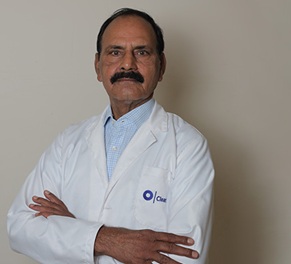Weight Loss Surgery - Types, Procedure, Benefits, Side Effects

Quick Summary
- Weight loss surgery, also known as bariatric surgery, is a medical procedure that aims to help obese people to lose weight.
- Several weight loss surgery techniques include gastric bypass, sleeve gastrectomy, and adjustable gastric banding.
- The benefits of weight loss surgery include significant weight loss, improving or resolving obesity-related health problems, and increased quality of life.
Table of Contents
- What is Weight Loss Surgery?
- Who needs Weight Loss Surgery?
- How is Weight Loss Surgery performed?
- What to expect Before and On the Day of Weight Loss Surgery?
- What to Expect After the Weight Loss Surgery?
- Benefits of weight loss surgery
- Risk and complications of Weight Loss Surgery
- Risk of Delayed Weight Loss Surgery
- Cost of Weight Loss Surgery
- Takeaway
- Frequently Asked Questions
- References
Weight loss surgery is also called as bariatric surgery, is a medical procedure that aims to help obese people to lose weight. Several weight loss surgery techniques include gastric bypass, sleeve gastrectomy, and adjustable gastric banding. These surgeries work by limiting the amount of food a person can eat and reducing the absorption of calories.
The benefits of weight loss surgery include significant weight loss, improving or resolving obesity-related health problems, and increased quality of life. Patients considering weight loss surgery should carefully weigh the benefits and risks with their healthcare provider. Continue reading this blog to learn more about which is the safest form of weight loss surgery.
What is Weight Loss Surgery?
Weight loss surgery, also known as bariatric surgery, is a type of procedure performed on individuals who are obese or overweight to help them lose weight.
The surgery is typically performed on individuals with a body mass index (BMI) of 40 or higher or those with a BMI of 35 or higher who have related health problems such as high blood pressure, diabetes, or sleep apnea.
The procedure works by limiting the amount of food the stomach can hold, causing a reduction in calorie intake and leading to weight loss. The most common weight loss surgery types include- Gastric sleeve surgery
- Gastric bypass surgery
- Adjustable gastric band
- Biliopancreatic diversion with duodenal switch


Who needs Weight Loss Surgery?
Weight loss surgery is typically recommended for individuals who are severely overweight or obese and have not been able to lose weight through diet and exercise alone. Here are some factors that may indicate a need for weight loss surgery:
- A Body Mass Index (BMI) of 40 or higher or a BMI of 35 or higher with related health problems.
- Difficulty losing weight and keeping it off through diet and exercise.
- Presence of obesity-related health problems such as type 2 diabetes, sleep apnea, high blood pressure, heart disease, or joint problems (Osteoarthritis)
- Significantly increased risk for obesity-related health problems in the future.
- Poor quality of life due to the physical and emotional effects of obesity.
- Inability to participate in physical activities or perform daily tasks due to weight.
- Unsuccessful weight loss attempts with other medical interventions.
How is Weight Loss Surgery performed?
Weight loss surgery is performed by a qualified bariatric surgeon and involves several different techniques. The procedure is typically performed using minimally invasive techniques, such as laparoscopy, which involves small incisions and a camera to guide the surgeon. The specific surgical approach and the type of weight loss surgery will depend on the individual's health status, weight loss goals, and other factors.
Gastric Sleeve Surgery
Also known as vertical sleeve gastrectomy is a weight loss surgery in which the majority of the stomach is removed, leaving only a banana-shaped section that is stapled shut.
- As a result of the surgery, your stomach can hold less food, causing you to feel full more quickly.
- The hormones or bacteria in your gastrointestinal system that affect appetite and metabolism may also be impacted by having part of your stomach removed.
- Due to the permanent removal of a portion of the stomach, this kind of surgery cannot be undone.
Gastric Bypass Surgery
Also known as Roux-en-Y gastric bypass procedure, it is a weight loss surgery involving three steps.
- To create a small pouch in the upper portion of your stomach, the surgeon first staples it. This makes the stomach smaller, and the patient will eat less as they will feel fuller.
- The surgeon then divides the small intestine into two parts. The lower portion of the small intestine is connected to the stomach pouch. Due to this, the food will bypass the stomach and the upper portion of the small intestine, and thus, fewer calories get absorbed in the body.
- The upper portion of the small intestine is reconnected to the lower portion of the small intestine. This enables the digestive juices in the stomach to move from the bypassed portion of the small intestine to the lower portion for complete digestion of the food.
- The bypass alters hormones, bacteria, and other elements in the gastrointestinal system that could impact metabolism and hunger. Although a surgeon might do it if it's medically required, gastric bypass is challenging to undo.
Adjustable Gastric Band Surgery
Like gastric sleeve and bypass procedures, the gastric band also helps in weight loss by providing a feeling of fullness in the patient.
- The doctor wraps an inflatable ring around the top of the stomach to create a small pouch. The saline solution is contained inside a circular balloon inside the inner band.
- The surgeon can modify the inner band to enlarge the opening from the pouch to the remainder of your stomach by injecting or removing the saline solution through a small device known as a port inserted under your skin.
- The patient will require numerous follow-up appointments after surgery to modify the size of the band opening. The surgeon may remove the band if it creates issues or is not assisting the patient in losing enough weight.
Biliopancreatic Diversion with Duodenal Switch
Also known as mixed surgery is also known as a type of weight loss surgery involving two main components: restriction and malabsorption. The steps of the procedure may include the following:
- Stomach reduction: The surgeon removes a large portion of the stomach, leaving a small pouch restricting the amount of food the patient can eat.
- Intestinal bypass: The remaining part of the stomach is connected directly to the small intestine, bypassing a large portion of the intestine and reducing the absorption of nutrients.
- Connections to the small intestine: The small intestine is reconnected to allow food to pass into the remaining portion of the intestine for absorption.
- Drainage of bile and pancreatic secretions: The bile and pancreatic secretions are redirected to the end of the small intestine, allowing them to mix with food and aid digestion.
What to expect Before and On the Day of Weight Loss Surgery?
Before weight loss surgery, preparing the patient both physically and mentally is essential. This may involve visiting a primary care physician, undergoing a psychological evaluation, and attending nutritional and exercise counselling.
Discussing the procedure with a surgeon and understanding the potential risks and benefits of the weight loss surgery is also essential.
On the day of the surgery, it is important to follow all pre-operative instructions provided by the surgeon and hospital staff. This may include not eating or drinking anything after midnight, taking prescribed medications, and arranging transportation for the patient.
What to Expect After the Weight Loss Surgery?
After weight loss surgery, it is crucial to follow the instructions of the surgeon and healthcare team to ensure proper healing and successful recovery.
- Diet: After weight loss surgery, the patient will be on a liquid diet for the first few days to allow the stomach time to heal. The patient will gradually advance to pureed and soft foods, eventually transitioning to a regular diet. It is essential to follow the recommended diet to ensure proper nutrition and healing.
- Exercise: The surgeon and healthcare team will provide specific instructions for when it is safe to begin exercising after weight loss surgery. It is significant to start slowly and gradually increase the activity level as tolerated.
- Medications: The patient may be prescribed some medicines to help manage pain, prevent infection, and aid digestion after weight loss surgery. It is essential to take the medications as directed.
- Follow-up appointments: It is also mandatory to visit the surgeon for follow-up appointments regularly post-surgery for proper healing and better results. During the follow-up visit, the surgeon will monitor the progress and address any concerns.
- Lifestyle changes: Weight loss surgery is just one part of the journey towards long-term weight loss and improved health. It is important to commit to making lifestyle changes, including following a healthy diet and exercise plan, to achieve and maintain your weight loss goals.
Benefits of weight loss surgery
The surgery provides several benefits for individuals who are majorly overweight and have been unable to reduce weight through diet and exercise alone. Some potential benefits of weight loss surgery include:
- Significant weight loss: Weight loss operation can lead to substantial and sustained weight loss, improving overall health and quality of life.
- Improvement in obesity-related conditions: Bariatric weight loss surgery can help to improve or resolve obesity-related conditions such as type 2 diabetes, high blood pressure, sleep apnea, gastroesophageal reflux disease (GERD), nonalcoholic fatty liver disease, and osteoarthritis.
- Increased life expectancy: Severe obesity is associated with an increased risk of death, and weight loss operations can help to reduce this risk and increase life expectancy.
- Improved mental health: Weight loss surgery can help improve self-esteem and body image, positively impacting mental health.
- Increased mobility and physical function: Weight loss surgery can help to improve mobility and physical function, making it easier to engage in physical activity and daily activities.
Risk and complications of Weight Loss Surgery
Like any surgical procedure, weight loss surgery also has some risks and complications associated with it. Some potential risks and complications of weight loss surgery include:
- Bleeding: There can be bleeding during and after the weight loss operation.
- Infection: There are disease risks at the incision site or in the abdominal cavity.
- Adverse reaction to anaesthesia: There is a risk of an adverse reaction to the anaesthesia used during the procedure.
- Blood clots: After weight loss surgery, blood clot formation may occur in the legs or lungs.
- Nausea and vomiting: Weight loss surgery can cause nausea and vomiting, especially in the first few weeks after the procedure.
- Abdominal pain: Weight loss surgery can cause abdominal pain, especially in the first few weeks after the procedure.
- Malnutrition: Weight loss surgery can lead to malnutrition due to the reduced ability to absorb nutrients. It is essential to follow a strict balanced diet and take any recommended supplements to ensure proper nutrition.
- Hernias: There is a risk of hernias developing at the incision site or in the abdomen after weight loss surgery.
Risk of Delayed Weight Loss Surgery
Delaying weight loss surgery can increase the risk of developing obesity-related health problems, as well as increase the overall risk of the procedure. Some risks of delaying weight loss surgery include:
- Worsening of existing health problems: Obesity-related health problems such as type 2 diabetes, high blood pressure, and sleep apnea can progress and become more challenging to treat if weight loss surgery is delayed.
- Increased risk of complications during surgery: The longer an individual has a high body mass index (BMI), the greater the risk of complications during weight loss surgery, including bleeding, infection, and deep vein thrombosis.
- Difficulty losing weight: The longer an individual is obese, the more difficult it can be to achieve significant weight loss through diet and exercise. Weight loss surgery may become less effective as the individual's weight increases.
- Increased mortality risk: Obesity is associated with an increased risk of death from various health problems, and the longer an individual remains obese, the greater their risk of death.
- Reduced quality of life: Obesity can significantly impact an individual's quality of life, making it more challenging to participate in physical activities and perform daily tasks. Delaying weight loss surgery can prolong these adverse effects.
Cost of Weight Loss Surgery
Depending on the operation type and the particular hospital or clinic performing the surgery, the cost of weight loss surgery in India might vary.
Various factors may affect the cost of weight loss surgery, including:
- Type of surgery: There are different weight loss surgeries, like gastric bypass, gastric sleeve, and laparoscopic adjustable gastric banding. Each procedure has its own cost due to the equipment and resources needed.
- Surgeon's experience and reputation: Surgeons with more experience and a good reputation tend to charge higher fees for their services.
- Geographic location: The cost of weight loss operation can vary by location, with procedures costing more in some areas due to higher living costs or more demand for the procedure.
- Hospital or surgical centre fees: The facility where the surgery takes place will charge for the operating room, anaesthesia, and other supplies.
- Pre- and post-operative care: Some surgeries require additional pre-and post-operative care, such as consultations with a nutritionist or physical therapist, which can add to the overall cost.
- Insurance coverage: Insurance coverage for weight loss surgery can vary depending on the policy and the individual's medical history. Some insurance plans may cover the entire cost, while others may only cover a portion or none.
The following gives a general idea of how much conventional weight reduction surgical operations in India cost:
| Procedure | Cost(in INR) |
| Gastric Bypass Surgery | 1,50,000 - 2,50,000 |
| Gastric Sleeve Surgery | 1,50,000 - 2,50,000 |
| Adjustable Gastric Band Surgery | 1,00,000 - 1,50,000 |
| Biliopancreatic Diversion with Duodenal Switch Surgery | 2,00,000 - 3,00,000 |
Takeaway
In conclusion, those who find it difficult to lose weight through more conventional means like diet and exercise may find success with weight loss surgery. Significant weight loss, an improvement in general health, and an improvement in quality of life are all possible outcomes. To ensure long-term success, it's crucial to comprehend the costs and possible side effects of weight loss operation and the lifestyle and financial commitments needed.
The decision to undergo weight loss surgery should be made after careful consideration and consultation with a healthcare provider. A commitment to a healthy lifestyle and ongoing support from a medical team should accompany it. If you or your loved ones have doubts or symptoms associated with weight loss surgery, contact our team of experts at HexaHealth. Our expert team of doctors can consult you and provide you with the proper treatment. Get in touch with us TODAY!
Frequently Asked Questions
What is a weight loss surgery?
Weight loss surgery is a type of surgical procedure that is used to help individuals who are severely overweight or obese. The surgery works by reducing the stomach size, which helps limit the amount of food a person can eat.
Why is weight loss surgery done?
Weight loss surgery is done to help individuals who are severely obese and want to improve their overall health. The surgery helps reduce the stomach size and minimise the quantity of food that can be consumed, leading to significant weight loss and improved quality of life.
What is the safest form of weight loss surgery?
There is no definitive answer to the safest form of weight loss surgery, as each procedure comes with potential risks and benefits. However, gastric sleeve and gastric bypass surgeries have low complication rates and high success rates in achieving significant weight loss.
What is the scientific name of weight loss surgery?
The scientific name for weight loss surgery is bariatric surgery. It includes various procedures such as gastric bypass, sleeve gastrectomy, and adjustable gastric banding, which aim to reduce the stomach size and help individuals lose weight by limiting the amount of food they can eat.
What are the benefits of weight loss surgery?
Weight loss surgery can improve overall health by reducing the risk of obesity-related conditions such as diabetes, hypertension, sleep apnea, and joint pain. It can also improve mental health, self-esteem, and quality of life.
What are the risks associated with weight loss surgery?
The risks associated with weight loss surgery include infections, bleeding, blood clots, bowel obstruction, leakage from the surgical site, and complications related to anaesthesia. Long-term risks include malnutrition, gallstones, and potential re-gain of weight.
Who are the best candidates for weight loss surgery?
The best candidates for weight loss surgery are individuals with a body mass index (BMI) of 40 or higher or those with a BMI between 35 and 40 who have related health conditions such as high blood pressure, type 2 diabetes, or sleep apnea. Individuals need to have attempted other methods of weight loss before considering surgery.
Is weight loss surgery safe?
Weight loss surgery is generally safe when performed by a qualified and experienced surgeon. However, like any surgery, it does carry risks and complications, and patients should thoroughly discuss the benefits and risks with their doctor before deciding on the procedure.
What should I avoid after weight loss surgery?
After weight loss surgery, avoid high-calorie foods, sugary beverages, and overeating. Follow the post-surgery diet plan, and don't consume alcohol or quit smoking. Avoid heavy lifting, strenuous exercises, and rushing into regular foods. Consult your doctor for guidance on post-operative care.
What is the minimum weight for weight loss surgery?
The minimum weight for weight loss surgery varies depending on the specific procedure and the individual's overall health and BMI. A BMI of Forty or higher or a BMI of Thirty-five with obesity-related health issues is typically required for bariatric surgery.
Is weight loss surgery painful?
Weight loss surgery can cause discomfort and pain during recovery, which may last several weeks. However, pain is managed with medication, and most patients report feeling better after a few days. The long-term benefits of weight loss surgery generally outweigh any short-term discomfort.
What is the duration of weight loss surgery?
The duration of weight loss surgery varies depending on the type of surgery and the individual patient. Still, it typically ranges from 30 to 45 minutes.
Is weight loss surgery serious?
Yes, weight loss surgery is a serious medical procedure that involves significant risks and potential complications. It is typically recommended for individuals who are severely obese and unable to lose weight through other means. Before surgery, a thorough evaluation and careful consideration of the risks and benefits are essential.
What is the average age for weight loss surgery?
The average age group for weight loss surgery is between 35 and 60. Still, it can vary depending on individual health factors and doctor recommendations.
Last Updated on: 29 September 2023
Reviewer

Dr. Aman Priya Khanna
MBBS, DNB General Surgery, FMAS, FIAGES, FALS Bariatric, MNAMS General Surgery
13 Years Experience
Dr Aman Priya Khanna is a highly experienced and National Board–Certified Laparoscopic, GI, and Bariatric Surgeon with over 13 years of clinical expertise.
He is widely regarded as one of the best bariatric surgeons in Ahmedabad, ...View More
Author
HexaHealth Care Team
HexaHealth Care Team brings you medical content covering many important conditions, procedures falling under different medical specialities. The content published is thoroughly reviewed by our panel of qualified doctors for its accuracy and relevance.
Expert Doctors (10)
NABH Accredited Hospitals (5)
Latest Health Articles
Related Treatments



























